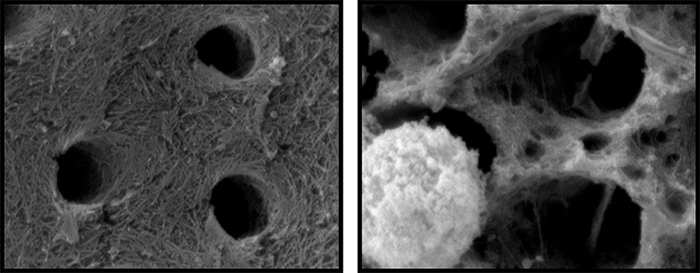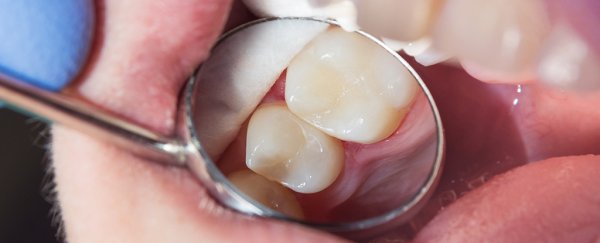The immune system does essential work in keeping us alive and healthy, but when it malfunctions it can cause problems – and there's new evidence that one of those problems could be dental cavities.
Researchers have found that tooth decay is potentially partly caused by bacteria enlisting the unwitting help of immune cells known as neutrophils, with cavities and damage to fillings the collateral damage of the battle between these neutrophils and bacteria.
Neutrophils are deployed through the gums to fight off infection – but while they can't damage teeth on their own, they do appear to cause bacteria to release an acidic self-defence mixture. In turn, that acid causes damage to our teeth.
"No one would believe that our immune system would play a part in creating cavities," says lead researcher Yoav Finer, from the University of Toronto in Canada. "Now we have evidence."
"It's like when you take a sledgehammer to hit a fly on the wall. That's what happens when neutrophils fight invaders."
Based on tests run in the lab, the team of researchers thinks that the acid released by bacteria when under attack from neutrophils demineralises teeth – dissolving the surface enamel that acts as a barrier to tooth decay.
Enzymes from both the targeted bacteria and the neutrophils can then eat away at the tooth, even though the neutrophils only got involved to try and help.
The process makes teeth particularly vulnerable to caries, the first stages of tooth decay, and this can all happen within the space of a few hours, according to the researchers. Both the dentin inside teeth and the resin used in artificial fillings could be vulnerable.
Once a tooth gets demineralised, the enamel it loses can't be fully replaced – though saliva and fluoride toothpaste can help, and we are seeing some promising research into ways of regrowing enamel that's been lost.
This newly discovered process might explain why tooth-coloured fillings often fail within a few years – they're designed to replace lost enamel and dentin but are also under attack from bacteria and the body's own immune system.
 Damage done by neutrophils. (Russel Gitalis)
Damage done by neutrophils. (Russel Gitalis)
More research is going to be needed to work out exactly what the relationship between tooth decay and neutrophils is – this is the first study to actually consider it – but if we can better understand tooth decay, we can do more to prevent and treat it.
This discovery might also lead to the development of better dental filling materials - ones more suited to withstand the mix of bacteria and neutrophils.
The bacteria are still the main offenders of course, but if the researchers are right then the body's immune system exacerbates the problem, too. The next step is to run tests on real-world teeth outside the lab setting.
"Ours is the first basic study to show that neutrophils can break down resin composites and demineralise tooth dentin," says one of the team, Russel Gitalis from the University of Toronto. "This suggests that neutrophils could contribute to tooth decay and recurrent caries."
The research has been published in Acta Biomateralia.
